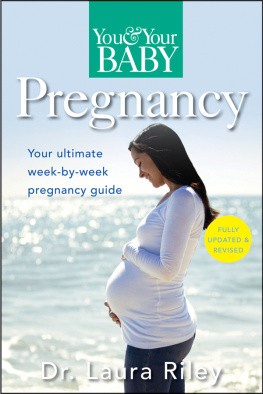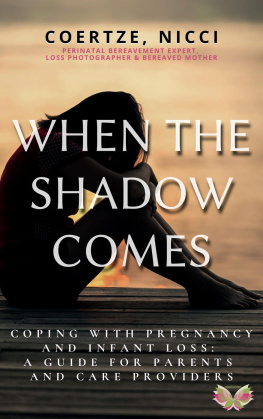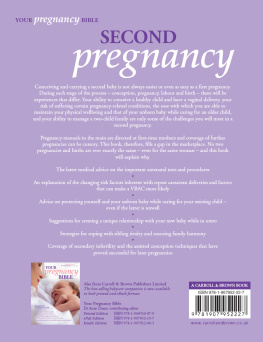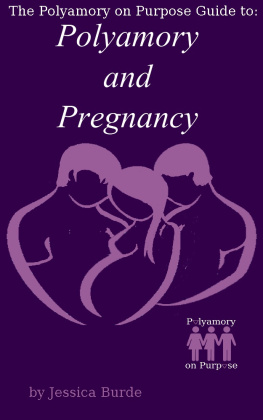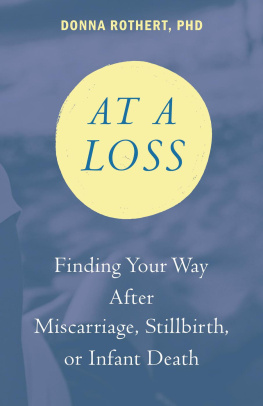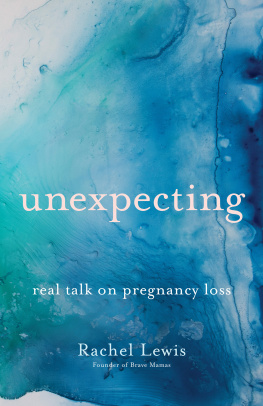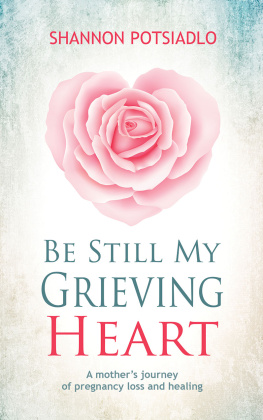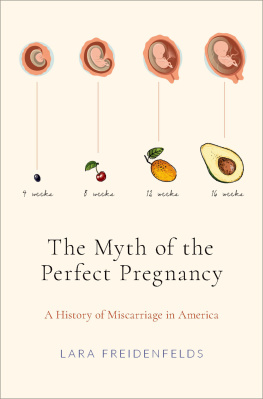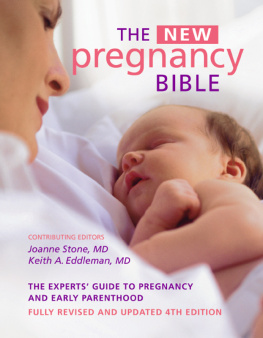Joann OLeary has a PhD and MPH from the University of Minnesota, as well as an MS in psychology from Queens University Belfast, Northern Ireland, and is endorsed as a level IV in infant mental health. She has a background in preschool special education and eighteen years in clinical practice as a parent-infant specialist in a high-risk perinatal center, where she worked individually with families and facilitated pregnancy-after-loss support groups. She has published a book, two book chapters, and two video productions on the pregnancy that follows loss. She was a 2016 Fulbright Specialist at University College Cork, Ireland, and is now a consultant to Star Legacy Foundation facilitating pregnancy-after-loss support groups. Her research and clinical focus is how perinatal loss and the pregnancy that follows impact parents, children, and extended family members.
Lynnda Parker is a registered nurse and holds degrees in education and nursing along with attending graduate studies in nurse midwifery. She has worked for twenty-five years in high-risk perinatal nursing. She founded the Pregnancy After Loss Support Groups with Dr. OLeary, where they cofacilitated the groups. She also taught childbirth preparation classes specially designed for pregnancy after loss. She developed a pregnancy class, Bodyworks, for women experiencing a complicated pregnancy. She has assisted Dr. OLeary with research, and together they have provided professional education for physicians, midwives, nurses, social workers, chaplains, and educators. She is currently an adjunct instructor in nursing.
Dr. Margaret M. Murphy is a registered midwife and registered general nurse with over twenty years of clinical midwifery experience. Her research area is pregnancy after loss. She has been a faculty member at the School of Nursing and Midwifery, University College Cork, Ireland, and is a member of the Pregnancy Loss Research Group, INFANT Research Centre, Cork, Ireland. She delivers bereavement education courses to undergraduate and postgraduate students and is lead author of Irish Standards for Perinatal Bereavement Education, two book chapters, and over thirty publications. She is the treasurer and executive board member of International Stillbirth Alliance.
Dr. Jane Warland is a midwife and faculty member at the University of South Australia. Since suffering the unexplained full-term stillbirth of her daughter Emma in 1993, she has been a passionate researcher of preventative and modifiable risk factors for stillbirth as well as a strong advocate for promoting public and maternity care provider awareness of stillbirth. Jane practiced as a nurse-midwife for thirty years before commencing work as an academic in 2008 and has more than one hundred publications, including a book titled Pregnancy after Loss, which she wrote and published with her husband, Mike, in 1996.
This book contains all four authors combined research and years of clinical practice with families pregnant after the loss of a baby. It incorporates major revisions of previous books and chapters written by the authors and material from videos produced by Dr. OLeary and Ms. Parker. Special thanks to the Bush Foundation in St. Paul, Minnesota, which funded Dr. OLearys original research. Dr. Warland also brings the perspective of a bereaved parent to this work in honor of her deceased baby Emma and her rainbow baby Sarah. Dr. Murphy would like to thank her doctoral research supervisors; special thanks to her husband Tony, her constant support and sounding board, and she dedicates this book to her children, Luke, Lily, and Izzy, who remain her greatest achievement. We are all grateful for the support given by our families, who endured us during the months this book was in production. Most of all, this book could not have been written without the many families who have shared their stories with us, for which we are all grateful.
Additional thanks go to:
Darrell Peterson, bereaved father to Elize, for reviewing the fathers chapter
Lynn Stylianou Jensen, bereaved grandmother to Hansel, Carolyne, Lillian, and Frank, for reviewing : The Ripple Effect
Amanda Feltmann for sharing her letter to family and friends of expectations before her rainbow daughter Corels birth following the loss of Juniper
Sid and Christine Chang for sharing their letter on moving forward with their sons and missing Madison
Diana Le-Cabrera for her mantra signs
Lisa Paraku, in New Zealand, for permission to use her words in the chapters Beautiful Chaos, Uncomfortable Truths, and Beautiful Babies Breathing
Anna Calix, in memory of Liam: labor picture of subsequent birth
Danielle Ondarza, in memory of Jude: postpartum picture
Brittany Day, in memory of Ruby and Sophia: picture of big sister Eliza
Michaela Backiel: birth announcement of her three children, in memory of Jonathan
Mona McNeely: poem in memory of Kevin
Anne Deane: poem in memory of Baily
Keri Padin: Wall of Hope in memory of her deceased children
Dr. Jolene Pearson: flex hold
Suzanne I. Staszak-Silva, executive editor, Rowman & Littlefield, for her support and insight
When the heart is cut or cracked or broken do not clutch it. Let the wound lie open. Let the wind from the good old sea blow in to bathe the wound with salt and let it sting. Let a stray dog lick it. Let a bird fly in the hole and sing a simple song like a tiny bell and let it ring.
This chapter begins your journey from loss to hope, in anticipation of trying again for a new baby, one who will be a sibling to your much-loved, deceased baby.
When the very worst thing imaginable has happened, how can you possibly make any meaning of your babys death? Pregnancy loss is an event that humans struggle to make sense of. It is not the natural order of things that children should die before their parents, and when that death occurs before birth, your faith in any natural order may be shaken to its core.
HOPE
You are thinking about trying to get pregnant again. What does that mean for you? As humans, we are inherently hopeful beings. In this pregnancy you will be hopeful of a live birth, a positive outcome. Finding hope may be challenging, but the fact that you are looking forward to another pregnancy is, in itself, a hopeful act. Maintaining hope throughout the journey of a pregnancy that follows a loss is an important activity for couples to engage in. Communication, which may be difficult at times, is key to supporting one another and finding hope. While others may be thinking you did not really know your deceased baby, your identity as a parent and attachment will continue forever. This is normal and to be expected. You are forever changed because of your deceased babys life and death.
Michael Trout, infant-parent specialist, shares a brief description of his grandmothers story after the loss of her baby in 1920, and who she became as a person because of this loss:
Maternal (and paternal!) identity changes, following the loss of a baby. I found myself thinking about how confusing it must have been for my grandmother, who was a woman of considerable power, to notice that she wasnt getting over the loss of her first daughter as quickly as others expected. She couldnt have articulated, then, that her role as a parent wasnt over when that baby died. She was never the same, but not because she was inadequate at grieving. It would affect her sense of self and her silent fears during subsequent pregnancies.
In your previous pregnancy, particularly if it was your first, you may not have thought of yourself as really a parent until your baby came into the outside world. This is probably a reflection of how society views pregnancy. In fact, how often did you hear, When is your baby due? They dont understand that your deceased baby made you parents during his or her pregnancy, as you made parenting decisions on his or her behalf every day. The transition to parenthood begins in pregnancy and takes many, many months. Birth itself is only a stepping-stone on the path, not the event itself. As you embark on a new pregnancy, you continue to parent your deceased baby because you are still a parent to that baby.


